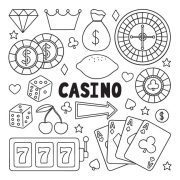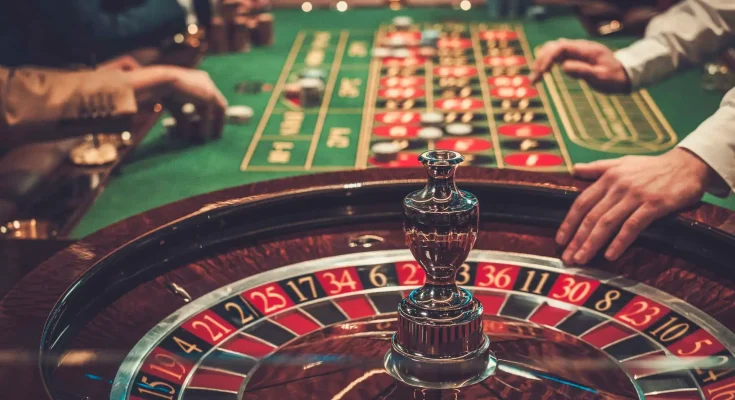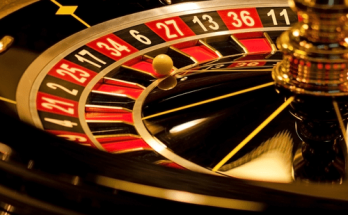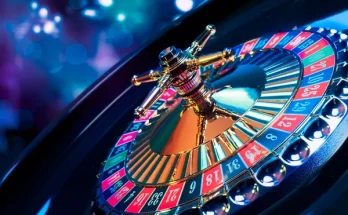Crisis reshapes everything – our routines, our priorities, and even our entertainment habits. And in recent years, one peculiar trend has emerged: a noticeable surge in online casino activity during economic downturns, pandemics, and political instability. While businesses shutter and savings tighten, platforms like 22Bet report spikes in traffic, deposits, and new player registrations. But why does gambling seem more attractive when financial anxiety rises and life becomes more uncertain?
This article investigates the intersection of crisis psychology and gambling behavior. From escapism to risk compensation, from economic hope to behavioral inertia, we’ll uncover the unusual and expert-backed reasons why online casinos thrive when the world seems to unravel – and why understanding these reasons is key to responsible engagement.
The Paradox of Play: Risking More When You Have Less
The Search for Control in Chaos
When external events feel out of control – such as job loss, inflation, or political upheaval – people instinctively seek out actions that offer a sense of agency. Even small decisions, like choosing to place a bet or spin a reel, provide a moment of control. Gambling, in this light, becomes more than a game – it becomes a coping mechanism. On platforms, players experience the psychological reward of making choices and influencing outcomes, even if only in illusion.
Hope as a Currency
In periods of crisis, hope can outweigh logic. People may rationalize that one big win could solve multiple problems – pay off debts, cover rent, or provide a cushion. The mere possibility of transformation through a single lucky event can overshadow statistical realities. Gambling thus becomes a vehicle for projecting one’s hopes, often to the point of emotional dependence.
The Cheap Dream
Unlike other forms of entertainment that require planning and expenses – vacations, shopping, outings – online gambling is low-friction. You can engage with just a small deposit and a few clicks. For many, this represents an inexpensive escape, one where a small financial commitment offers not only hours of stimulation but the dream of a different future.
Behavioral Psychology Behind the Trend
Escapism and Emotional Relief
Economic and social crises are deeply stressful. People turn to media, games, and other immersive experiences to avoid reality, and gambling fits neatly into that category. Casino interfaces are designed to engage all senses, creating a micro-world where players can momentarily forget their circumstances. This isn’t simply distraction – it’s an emotional decompression chamber.
Habitual Repetition and Comfort
Behavioral studies show that people return to known behaviors in times of stress. If someone has a gambling history, they are more likely to return to it during hardship because it feels familiar and controllable. Even if the results are unpredictable, the routine of gambling itself offers psychological comfort, especially in uncertain environments.
Dopamine Compensation
Stress and depression can deplete dopamine – the brain’s “feel good” neurotransmitter. Online gambling provides artificial but effective dopamine stimulation. Every spin, win, or bonus gives a micro-dose of pleasure, which creates a feedback loop that can be addictive under the guise of emotional survival.
Economic Desperation and the Myth of the Big Win
“Nothing Left to Lose” Mentality
When financial collapse looms, some individuals enter a psychological state of desperation where typical risk assessments fall apart. In this mindset, gambling isn’t about entertainment – it’s about survival. Players begin to view platforms not as games but as last-chance opportunities. Ironically, this desperation often results in higher losses, exacerbating their already difficult situation.
Risk-Taking Increases Under Stress
Cognitive research shows that stress reduces our ability to weigh long-term consequences. People facing immediate crises are more prone to high-risk decisions. Gambling, with its promise of quick outcomes and immediate feedback, becomes an appealing risk in the absence of other viable options.
Cognitive Bias Reinforcement
Belief systems become skewed under stress. People may begin to believe they’re “due” for a win or that a lucky streak is just around the corner. These cognitive distortions are common in gambling behavior, but they become particularly convincing when reinforced by a crisis environment where rational thinking is already compromised.
The Digital Boom and Accessibility Factor
Casinos Never Close
Unlike physical venues, online casinos are always open. This 24/7 availability means that crisis-driven impulses can be acted upon immediately. There’s no need to travel, dress up, or even leave the house. For someone under duress, the constant accessibility makes gambling one of the easiest coping options.
Anonymity and Privacy
Online gambling offers a degree of anonymity that’s not possible in physical casinos. This is especially appealing during crises when shame or fear of judgment may prevent someone from seeking help. At casino, players can gamble alone and in private, which may reduce social stigma – but also limits external checks and balances.
Mobile-First Generations
With the proliferation of smartphones and mobile apps, gambling has seamlessly integrated into everyday digital life. Especially among younger demographics, mobile-first design makes gambling feel like any other entertainment app – easy to access, visually pleasing, and socially normalized.
Marketing Psychology and Casino Adaptability
Targeted Promotions During Crisis
Casinos are adept at reading the cultural room. During crises, their messaging shifts: “Play from home,” “Boost your mood,” “Fight boredom with bonus spins.” These campaigns are not accidental – they are carefully crafted to resonate with the collective emotional state of the time.
Flexible Payment Options
To lower the barrier to entry during economic hardship, platforms may allow for smaller deposits, offer more micro-bet options, and accept various digital currencies. This inclusivity increases the likelihood of user engagement across income levels.
Gamified Loyalty and Reward Structures
Casino apps now resemble video games. With streaks, missions, and unlockable achievements, they gamify loyalty to increase retention. In times of stagnation – such as job loss or lockdowns – these gamified rewards provide a sense of progress that life otherwise lacks.
Sociocultural Factors: Gambling in Collective Anxiety
Gambling as Social Proxy
For individuals experiencing social isolation, online gambling can simulate interaction. Live dealer games, chat features, and multiplayer tournaments provide digital social contact. In times of widespread loneliness, this is a compelling substitute.
Cultural Normalization of Risk
In some societies, gambling is deeply entrenched as a tool for social mobility or as a rite of passage. During crises, when the traditional routes to success feel blocked, gambling becomes a culturally acceptable form of “trying your luck.”
Influence of Local Economies
In countries where the economy is unstable or safety nets are weak, gambling surges not out of luxury, but necessity. For some users, it becomes a parallel economy – one where they hope to gain what the real economy fails to offer.
Ethical Questions and Industry Responsibility
Is It Exploitation or Demand?
While the increase in user activity benefits platforms, it raises ethical concerns. Are casinos merely serving demand, or are they exploiting psychological and financial vulnerability? The answer often lies in the tools and transparency provided.
The Role of AI in Behavior Monitoring
Advanced AI tools can identify patterns that suggest problem gambling – such as deposit spikes, time-on-site surges, or withdrawal cancellations. Ethical platforms use these insights to suggest breaks or promote self-exclusion options, rather than simply increasing marketing pressure.
Transparent Communication
The most responsible casinos provide clear terms, access to gambling help resources, and promote responsible play. Especially in crisis periods, being transparent and user-focused helps maintain trust and reduces the risk of public backlash.
Stories from the Inside
“Laid Off and Logged On”
After losing his job, a 35-year-old former project manager found himself gambling nightly. “It gave me something to do, something that felt like forward momentum – even if I knew I wasn’t really winning.”
“A Moment of Control”
A refugee mother displaced by conflict turned to online gambling. “I couldn’t control anything in my life. But I could control when I played, what I bet, and how I felt when I won.”
“I Won, Then Lost It All”
A freelance worker describes a week-long streak that turned into a financial collapse. “I thought I’d cracked the code. Then I spent the winnings trying to win again.”
Expert Insights
Dr. Simone Karcher, Psychologist
“In a crisis, our cognitive bandwidth narrows. We make more impulsive choices because our brains are overwhelmed. Gambling offers a quick hit of clarity and reward.”
Felix Grant, Economist
“Online casinos thrive in downturns because they market themselves as both distraction and opportunity. That’s a powerful combination in uncertain times.”
Maya Terenko, UX Strategist
“Casino UI during crisis periods often changes tone – softer fonts, warmer colors, more encouraging messages. These are not accidental. They are emotional UX.”
Managing the Urge During Difficult Times
Self-Reflection Prompts
Ask: Am I gambling to solve my problems or to forget them? Am I feeling better afterward – or worse? Self-awareness is the best tool for moderation.
Use Casino Tools
Casino provides tools like deposit caps, session timers, and exclusion periods. These should be viewed not as limitations but as supports for healthier play.
Engage in Parallel Coping Strategies
Instead of defaulting to gambling, explore alternatives like journaling, meditation, physical activity, or connecting with others. These actions rebuild dopamine naturally and with fewer consequences.
Track Emotions and Spending
Keeping a play diary or using budgeting apps makes gambling behavior more visible. The more you know about your patterns, the more power you have to shape them.
What Casinos Can Do Better
Proactive Outreach
Instead of waiting for problematic patterns to emerge, casinos can offer proactive prompts to check player wellbeing. Even a simple nudge can trigger re-evaluation.
Partner with Mental Health Platforms
Collaborating with therapy services or financial counseling apps can offer players broader support and integrate real help into their gaming experience.
Ethical Advertising
Messaging that respects player autonomy and acknowledges real-world struggle is more sustainable. Crisis periods call for empathy, not exploitation.
Conclusion: Crisis and the Casino Mirror
In hard times, online casinos don’t just offer a service – they reflect our internal states. For some, they provide relief, distraction, and connection. For others, they represent risk, escape, and false hope. The truth is that these platforms are mirrors, amplifying what users bring to them.
As players, understanding the deeper drivers behind crisis-era gambling empowers us to make mindful decisions. As providers, building ethical, responsive systems fosters long-term trust and sustainability.
Because when the world shakes, we reach for something that feels steady. But the real question isn’t whether the casino stands firm – it’s whether we do.




